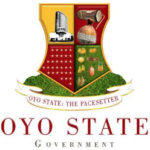There is a French saying that “little drops of water make a mighty ocean”. The idea of hardwork and persistence resulting in success has been an age-long formula proposed by early entrepreneurs. The likes of Jack Ma, Strive Matsiyiwa, Richard Branson, Aliko Dangote, can tell with relish, the efforts it took them to build their business empires.
Unfortunately, for the average Nigerian seeking to build a business or become an entrepreneur, these dots do not seem to connect. It seems there is a missing link of the jigsaw that makes effort + consistency result in success.
For instance, a young entrepreneur gets a brilliant idea but lacks resources. She aims to develop the idea further and gets stuck due to inadequate funds or motivation and tends to be supported by friends and families rather than high net worth Individuals, angel investors or venture capitalists.
With a population of about 200million people, and a consistent 3.2% annual growth rate, estimates show that Nigeria will have a population of about 400 million by 2050. A large percentage of this population will be youths and globally, 2.35 percent of the world´s total population. The attendant crisis of this exploding population is that, in 2050, for every 43 people on the globe, at least one will be a Nigerian. That one Nigerian will most likely be young (aged 15 to 35), and most likely unemployed or underemployed.
The African Development Bank (AfDB) projects that, across Africa, 263 million young people will lack an economic stake in the system by 2025. Figure 1 above shows that there is a 4:1 ratio of employable youth to available job across the continent. This projection, of a catastrophic future if not managed, means that the continent will have a stifled economic growth. To mitigate this, Nigeria has birthed several innovative youth engagements across different sectors: agriculture, health, finance, property, entertainment and transport etc. More so, the government has launched social intervention programmes. An example is the National Social Investment Programme (NSIP) embedded in the National Economic Recovery and Growth Plan (ERGP) 2017-2020 and aimed at reducing youth unemployment and eradicating poverty. Nevertheless, more needs to be done. We see that the rates of unemployment and poverty, despite these interventions, have been steadily growing.
More recently, however, a movement of young entrepreneurs driven by the zeal to solve problem and survive in the decreasing economic growth have evolved. The likes of PiggyVest, Paystack, ThriveAgric, Ribi, Kobo, Estate Intel, Freeme digital, Hotels.ng, Gokada, Stutern, Farmcrowdy Mobileforms Africa, Flutterwave, etc. have taken to creating innovative ideas and solutions, creating not only self-employment but job opportunities. Most of these start-ups have built their businesses organically before approaching venture capitalist, angel investors or PE firms for further funding.
These waves of entrepreneurs have inspired the diversification of options for youth. Increasingly, gainful employment in a white-collar job is not the only option for graduates; they can aim to be young and growing CEOs, entrepreneurs and inventors.
We need several engagement methodologies to nurture and grow the Nigerian economy. The high population means that we will need to explore untapped and unidentified opportunities to tackle the unemployment menace.
As a bridging advocates and believers of start-ups, the youth in Africa and Nigeria seeking to be entrepreneurs and business owners deserve platform in connecting the dots with the right people, organizations and institutions.
More than ever before, we will need to conscientiously bridge the gaps of leadership and promote diversity and inclusivity in our workforce. Trust is one of the most essential elements needed in this wave of employability creation in Nigeria.
We currently have a very low trust system in Nigeria, thus, our reliant on cash because digitized payments seem mythical and ridden with stories of cyber fraud and second guessing investments.
Besides, there is the challenge of doubting gatekeepers of security due to past failures, corruption and insurgency as well as getting low voter turn-out as the electoral systems has failed time and again.
Nevertheless, Jack Ma says we need to trust because when we trust, everything is simple and when we don’t trust, things get complicated. Building trust takes time and Synergos believes there is an urgency to create trust networks to make up for lost time and ensure we don’t have a discounted future. More than ever, we need to connect people, foster trust and bridge leadership in agile teams and learning circles.
Etim writes this piece from Maitama, Abuja.
 Join Daily Trust WhatsApp Community For Quick Access To News and Happenings Around You.
Join Daily Trust WhatsApp Community For Quick Access To News and Happenings Around You.


